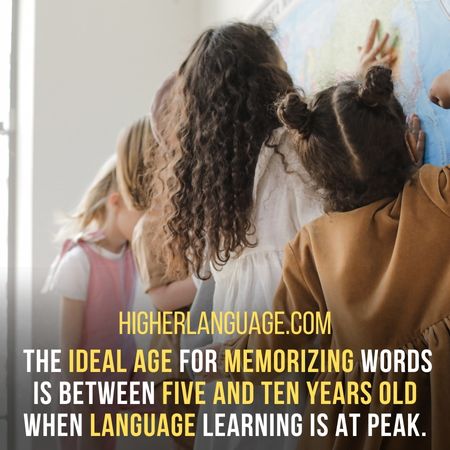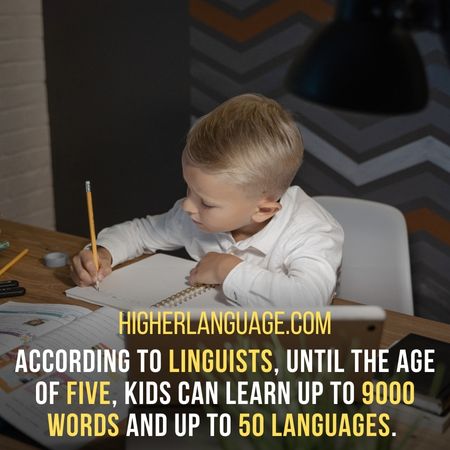How many words does the average person know? It’s a difficult question to answer, as many factors contribute to how many words someone knows.
[toc]
Vocabulary is a major factor, as some people naturally have an expansive vocabulary while others may need to work at it. So let us explore some more factors.
How Many Words Does The Average Person Know?
As we age, our vocabulary expands due to our interactions with the world around us.
Our reading, conversations, and how seriously we take language all contribute to how many words we know.
As a result, how many words an individual knows can vary significantly from person to person.
It’s important to note that how many words an individual knows depends on various factors.

Education level, age, personal interests, and language exposure affect how many words someone knows.
For example, someone with an extensive vocabulary due to their occupation may know many more words than someone with less exposure to the language.
Additionally, those with a higher level of education tend to have a larger vocabulary.
That is because they are more likely to have read and been exposed to a greater variety of words.
Regardless of how many root words you know or how wide your vocabulary is, there are always new words to learn and discover.
For example, the English language is constantly adapting to new technologies and industries, which means that the average person’s vocabulary knowledge is always growing.
While how many words an individual knows may not seem important at first glance, having a broad vocabulary can be very beneficial.
It can help you communicate more clearly in both spoken and written language and also enable you to understand concepts more quickly.
In conclusion, how many words an individual knows varies greatly from person to person.
But having a broad vocabulary can be very beneficial in both your personal and professional life. So make sure to keep learning new words whenever possible.
According To Statistics
The average adult in the United States has a vocabulary of around 20,000 words – including both spoken and written knowledge.
This number is estimated to be much lower for younger people, with anyone aged 18-24 typically having a vocab size of just 10,000 words.
It’s important to note that this does not mean how many words someone can recall – just how many they know.
How many words does the average person know? It’s a question that has been the subject of much debate over the years.
Estimates range from 10,000 to more than 20,000 words. The truth is, it depends on how you define “the word.”
Some linguists and lexicographers agree that the average adult native English speaker knows around 15,000 words, give or take a few thousand.
What Age Is Ideal For Memorising Most Words?
Though adults have the largest vocabulary, children learn new words much faster.
Most kids learn around 5-9 new words daily in their early years, which increases as they get older.

Generally speaking, the ideal age for memorizing words is between five and ten years old, when language learning is at its peak.
That said, adults can still learn new words throughout their lives. It’s generally accepted that the best age to learn and remember new words is between the ages of 4-7.
During this time, children learn to speak fluently to absorb a lot of new information.
Are There Ways To Increase Your Vocabulary?
There are simple ways to increase your word power, from reading books to playing online word games.
It’s also very important to use newly learned words in conversation, as this helps you retain them in your memory.
Additionally, mnemonic devices such as rhymes or songs can help you remember how certain words are spelled and used in context.
Finally, thinking of new words when writing or speaking can help you expand your vocabulary.
The average person knows tens of thousands of words, but the exact number depends on how broadly one defines a “word.’
Plus how much exposure they have had to language through reading, writing, speaking, and listening.

The more you read, write, talk to others, and listen to the news, the more words you will know.
Of course, not all these words are in your active vocabulary—that is, how many words you can use in conversation or writing.
However, by continuing to expose yourself to a new language, you can increase how many words you know and how articulate your speech and writing become.
Here are some ways that can help you expand your vocabulary:
1. Reading Books:
Reading is one of the best ways to expand your vocabulary. It’s an activity that can be done for pleasure, knowledge, or even to increase your understanding of a certain language.
Studies have shown that people who read regularly tend to have larger vocabularies than those who do not.
In addition, reading books, magazines, newspapers, or even online content can give you a better understanding of how different words are used in their intended context.
Reading is a great way to become exposed to new words and how they are used in context.
Choose books that interest you, and try to look up any unfamiliar words as you read.
2. Watching Educational Shows:
Another great way to learn how to use new words is watching educational shows.
Whether it’s a documentary, news show, or children’s program, the dialogue in these programs often contains high-level vocabulary.
That can help you further your understanding of language.
If there are any words you don’t recognize, look them up so you can add them to your existing vocabulary.

Documentaries or other educational programs can also help you learn new words by exposing you to how experts use them in their field.
3. Writing:
Writing can be a great way to learn how to use new words in the correct context.
Keeping a journal, writing essays, or even jotting down your thoughts can help you become more comfortable with how words should be used.
In addition, writing will help you understand how words are used in different contexts and how they can be combined to create interesting and informative sentences.
4. Doing Word Puzzles Or Playing Word Games:
If you’re looking for a more fun and interactive way to expand your knowledge of words, try playing games like Scrabble or crossword puzzles.
Not only are these activities enjoyable, but they also help.
Activities like crosswords or other word games can also expose you to new words and how they can be used in different contexts.
5. Getting Exposure In An Early Age:
Exposure to words at an early age can be beneficial in how many words you know and how comfortable you use them.
Reading fiction and non-fiction books helps children become familiar with how language is used in different contexts while exposing them to new words.

According to linguists, until the age of five, kids can learn up to 9000 words and up to 50 languages.
Exposure to vocabulary at a younger age can increase your chances of expanding it.
6. Having A Wide Vocabulary In Everyday Life:
A wide vocabulary in everyday life can be beneficial in countless ways, such as when talking to friends, family, and colleagues or writing reports and essays for school or work.
It helps you express yourself more clearly and accurately.
In addition, you may find that you are more successful in certain activities, such as job interviews, when you use a more extensive vocabulary.
7. Learning New Words:
Adults can also benefit from learning new words and how to use them.
One strategy is to pick up a dictionary or thesaurus and look up words you don’t know how to spell or find interesting.
That gives you practice in recognizing how words are used in context and how to use them correctly.
Additionally, you can increase your vocabulary by reading widely on different topics or speaking with others with a strong English language command.
Ultimately, how many words the average person knows depends on their level of education, hobbies, and interests, as well as how often they use language.
Keeping these tips in mind and regularly increasing your vocabulary can help ensure that you’re always growing and learning how to use words more effectively.
What About Language Fluency?
Knowing how many words the average person knows is just one part of how fluent a person is in a given language.
Fluency also involves understanding how to use these words in context, intonation, and pronunciation.

To be truly fluent in any language, it’s important to know how words should be used and how they sound when spoken.
Ultimately, how many words the average person knows is just one part of the puzzle.
It’s important to read and expand your vocabulary, practice speaking with others, and listen carefully to how they use their words to be fluent in a language.
You can become an expert in any language with enough time and dedication.
Conclusion:
How many words the average person knows is difficult to answer accurately.
Factors like how often words are used, how deep someone’s understanding of language is, and how much time they spend practicing all impact their fluency in a language.
While there may not be an exact number that defines how many words someone knows, it’s still important to practice, read, and listen to become fluent.
With enough dedication, you can become an expert in any language.